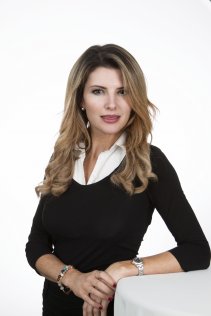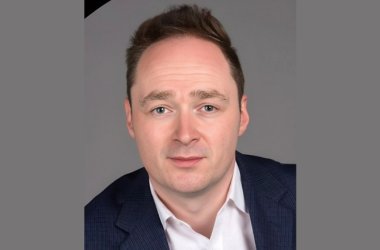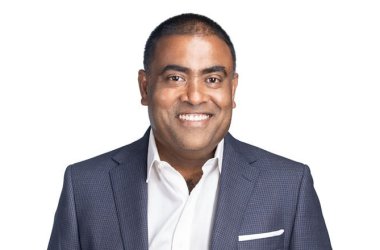CNME Editor Mark Forker spoke to Mary O’Leary, AEOI, Business Development Manager, at Vizor Software, to find out how the company has become the ‘go-to’ partner for tax authorities in the GCC region, the role its playing in enabling countries in the Middle East to become compliant with international tax standards – and the success of its recent Oman AEOI project, which was delivered 100% remotely.

The Middle East is home to some of the world’s fastest growing economies in the world, but the region has undergone a huge tax transformation of late and the landscape is quickly changing. However, O’Leary believes that there has been a shift globally in terms of the way we think about tax.
“I think there has been a real rethink and reshuffle in the tax system generally, and I think this was largely triggered by the events of the global financial crisis in 2008. Most of the tax systems and legislations that we were using had been implemented in the 1920’s and 1930’s, and were just no longer fit for purpose in the interconnected, global and increasingly digital economy that we now live in,” said O’Leary.
One of the major incentives that is used by countries in the GCC in order to attract the best talent is the fact that there is no income tax, and despite the tax system being subject to a radical overhaul in the Middle East, according to O’Leary that is unlikely to change.
“Countries in the Middle East are able to attract a very talented expatriate workforce largely attributable to how the tax system is structured. When you’re building a world-class economy like the UAE is, you’re not going to get rid of that tax-free system anytime soon as there is too strong a policy in favor of keeping it. However, in terms of corporate tax I wouldn’t be surprised to see a change in policy in some countries over the next few years,” said O’Leary.
Vizor were well-positioned to capitalise when the tax exchange landscape began to change in the Middle East, as they were already quite active in the region as a provider of supervisory software solutions for monetary authorities, financial regulators and insurance regulators.
“When this whole international tax exchange landscape started to change with FATCA in 2011, and CRS a year or two later and then BEPS in 2014, we were already very established in the market and had the Saudi Arabia Monetary Authority (SAMA) as one of our clients. by serv and perhaps the success we have had to date with partnering with SAMA was influential in GAZT the tax authority of Saudi Arabia in choosing our platform also. Partnering with GAZT gave us a lot of weight in the region – everyone knows it has a stellar reputation and in fact was very active in hosting of the G20 Finance Ministers meeting held just last week,” said O’Leary.
The dynamic and charismatic AEOI Business Development Manager at Vizor Software, also highlighted how Saudi Arabia is seen as an example to other countries in the region in terms of their implementation processes. Vizor has since acquired 5 out of the 6 GCC tax authorities as clients, stressing not only the strategic importance of the Middle Eastern region but also how much she and the team enjoy working in such a fast paced and evolving tax landscape.
“We are the global leader in this type of tax software and have 19 tax authorities worldwide using the Vizor platform which accounts to almost 30% of the global reportable Financial Institutions (FIs). However, we also pride ourselves on not just being a software company. We have a lot of specialists and tax expertise in the area of international tax exchange, and we also have a lot of technical expertise inhouse as well. We see ourselves more as a strategic partner rather than just simply a software provider, and that enables us to strengthen and grow relationships, so for every other tax exchange obligation that comes along we’d like to think that we’re naturally the first choice,” said, O’Leary.
Countries in the Middle East have stated its desire to become more transparent in order to get in line with the OECD and EU in terms of its tax systems and structures by committing themselves to international standards such as CRS and BEPS.
O’Leary points out that whilst intentions have been genuine, many have committed to CRS without knowing how to successfully execute it, but that’s where Vizor come into the picture.
“I think our knowledge of the technical aspect of this process has been a big help for us because it involves a huge complex legal network. There is domestic and international legislation and double-tax conventions, and when you try and put them all together that can be very complex. Now that is the theoretical aspect of it, but a lot of it is process and many countries think exchanging tax information is a great idea, as it is a very strong statement politically, but in cases they may make the commitment first before actually formulating a plan to implement CRS,” said O’Leary.
O’Leary says that in many cases the technical aspect is almost the final stage, and added that whilst technology is a great enabler, you need to know where you want to go with it in order to ensure your journey is a successful one.
“The first step if needs be is to correct your domestic legislation, and then you enact regulations and educate your banking community, but really the technical part is almost the last step. For me the most interesting part of the entire exercise is enabling governments to see the whole process holistically. Technology is seen as a silver bullet, but it’s only as good as the people and processes around it. You need to know what you want to get out of the technology and want you want to feed into it,” said O’Leary.
COVID-19 has impacted every aspect of our daily lives and has changed how we work, where we work and when we work. It has brought many challenges, but it also presented new opportunities and allowed many organisations to explore and discover new ways of conducting business.
Vizor’s recent project with the tax authority in Oman is a perfect illustration of how a company has adapted and embraced new methods of working in order to get the same result.
“We got the contract with Oman in a pre-COVID world and everything was going to plan in relation to us being on the ground at the beginning of March, but that timeframe obviously coincided with the global pandemic, which practically shutdown global travel. The ability to react quickly to change was very important, and not just from us at Vizor, but also from within the tax authority,” said O’Leary.
O’Leary paid tribute to its local partner SSL Oman, whom she said did a brilliant job in terms of managing the whole project on the ground – and added that it was a whole new experience for both Vizor and the tax authority in Oman.
“Generally, with our software implementations we will always be on site. Now when I say we, I’m referring to the project manager, a DevOps engineer and maybe a trainer, so typically we’d normally have a fairly strong team on the ground. However, this was our very first 100% fully remote delivery, and Oman had never done any form of tax information exchange, so it wasn’t like they had a system before and then transitioned to Vizor. It was completely from scratch, which in a way from a technical perspective a green field site implementation can be a little bit more straightforward,” said O’Leary.
There were bumps and challenges during the project, such as issues with their supply chain, but O’Leary expressed her delight at how they were able to successfully deliver such a large-scale project 100% remotely.
“You need to think ahead a little bit more in this environment and you need to foresee possible risks and obstacles before they arise because the controls and the things you can do are limited. Thankfully, we were able to successfully deliver the Oman project in time for FI filing deadlines. This has been a real success story for us in the region in what has been an unprecedented time for everybody as we continue to adapt to what has been described as the ‘new normal’,” concluded O’Leary.





